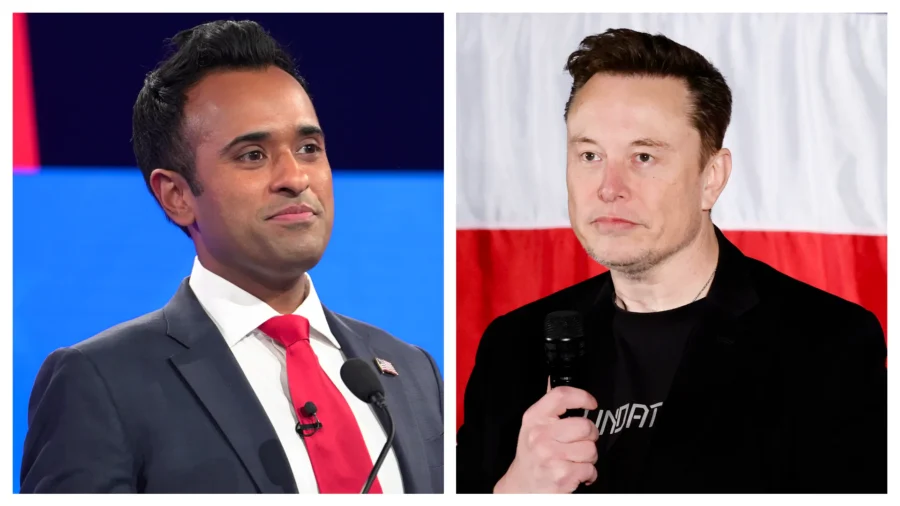
Billionaire entrepreneur Elon Musk and former presidential candidate Vivek Ramaswamy have begun to set the framework for President-elect Donald Trump’s newly established Department of Government Efficiency (DOGE).
The DOGE leaders, who will act as cost-cutters for the federal government, officially started their recruitment process for the department on Thursday.
“We are very grateful to the thousands of Americans who have expressed interest in helping us at DOGE,” the official account for DOGE stated on X. “We don’t need more part-time idea generators. We need super high-IQ small-government revolutionaries willing to work 80+ hours per week on unglamorous cost-cutting. If that’s you, DM this account with your CV. Elon & Vivek will review the top 1% of applicants.”
The X account for the department recently went live for the sake of full transparency, according to Musk.
“All actions of the Department of Government Efficiency will be posted online for maximum transparency,” Musk wrote on X on Nov. 12.
“Anytime the public thinks we are cutting something important or not cutting something wasteful, just let us know! We will also have a leaderboard for most insanely dumb spending of your tax dollars. This will be both extremely tragic and extremely entertaining.”
Musk and Ramaswamy will be tasked with large-scale structural reform, focusing on dismantling government bureaucracy, slashing excess regulations, and restructuring federal agencies. They have been tasked with weeding out massive waste and fraud in the annual $6.5 trillion of government spending, according to Trump.
In his announcement, the president-elect said that Musk and Ramaswamy will create an “entrepreneurial approach to government never seen before.”
Musk stated online that the work ahead will be tedious, adding he will likely make a lot of enemies and that “compensation is zero.”
The SpaceX co-founder played an influential role in campaigning for Trump. Musk gave away $1 million a day in his swing state sweepstakes. He also spent an estimated $200 million in his political action committee to help elect Trump.
Ann Skeet, director of leadership ethics at Santa Clara University’s Markkula Center, says that Musk’s businesses may pose a potential conflict of interest issue for him and his new role.
For example, his SpaceX company has billions of dollars in contracts with NASA. Tesla, his other company, benefits from government tax incentives and is subject to auto safety regulations.
“There’s direct conflicts between his businesses and government’s interest,” Skeet said.
As for Ramaswamy, getting involved in DOGE appears to align with past comments he has made on the campaign trail in which he expressed support for federal layoffs. He called to slash 75 percent of the federal workforce during his first term if elected to office.
Five federal agencies would be shut down under his watch, according to the former presidential candidate: the FBI, the Department of Education, the Nuclear Regulatory Commission, the Bureau of Alcohol, Tobacco, Firearms and Explosives, and the Food and Nutrition Service.
More recently, Ramaswamy said that the only right answer to bureaucracy is a massive downsizing.
While the development of the department is still in its early stages, Trump’s move to create DOGE can be compared to President Ronald Reagan’s development of a cost-cutting commission in 1982. Similarly, Reagan also tapped a business tycoon to lead the agency.


